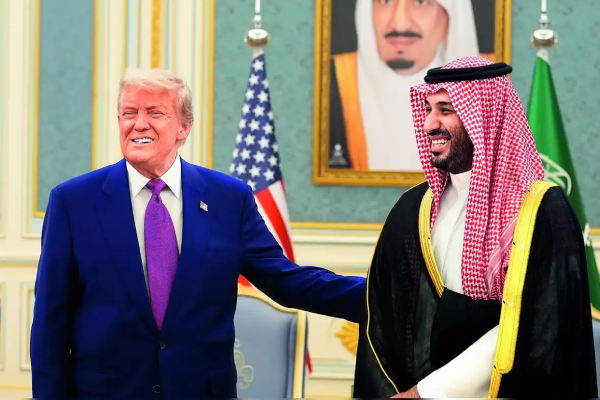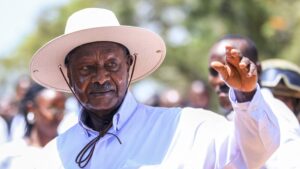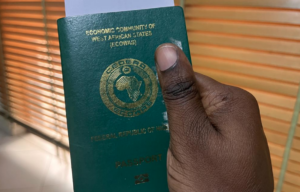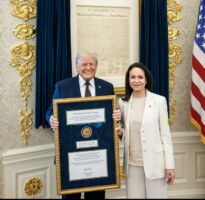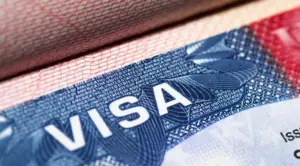Two significant announcements were made by U.S President Donald Trump during his visit to the Gulf on Tuesday.
Saudi Arabia promised to spend $600 billion in the American economy, and the United States will relax long-standing sanctions on Syria.
The United States has also concluded an arms agreement with Saudi Arabia worth approximately $142 billion, which the White House has described as the largest defense cooperation transaction in American history.
Speaking at an investment summit in Riyadh, Trump stated that the decision to relax sanctions on Syria was made at the behest of Saudi Crown Prince Mohammed bin Salman.
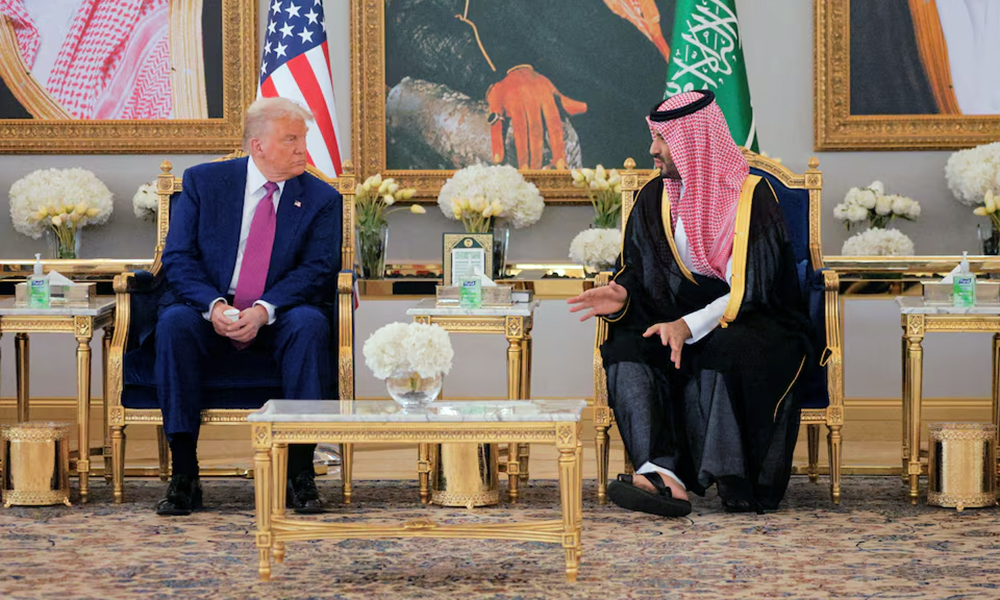
He emphasised that the sanctions had served their purpose, but it was time for Syria to go on.
This marks a major shift in U.S. foreign policy. Syria was labelled a state sponsor of terrorism in 1979, and sanctions intensified after civil war erupted in 2011.
The move follows the toppling of President Bashar al-Assad last December by rebel forces led by current President Ahmed al-Sharaa.
Syrian Foreign Minister Asaad al-Shibani called the move a “new start” on X, formerly Twitter.
Read Also
A White House official confirmed that Trump will briefly meet with Sharaa in Saudi Arabia on Wednesday.
Trump and Crown Prince Mohammed also signed broad agreements covering defence, energy, mining, and other sectors.
The arms deal includes contracts with over a dozen U.S. defence firms, encompassing air and missile defence, space, maritime security, and communications.
While it’s unclear whether the package includes Lockheed Martin’s F-35 jets, sources say future deals could push the total value to $1 trillion.
Saudi Arabia remains one of America’s largest arms buyers, with a long-standing relationship based on oil-for-security cooperation.
Trump’s visit prioritised economic partnerships over security.
He met with several Saudi leaders, including investment minister Khalid al-Falih, Aramco CEO Amin Nasser, and Public Investment Fund governor Yasir al-Rumayyan, while reviewing models of the kingdom’s high-profile development projects.
Saudi Arabia’s Vision 2030 reform plan seeks to diversify its oil-dependent economy, including gigaprojects such as NEOM, a future megacity. However, financial pressures from mounting costs and dropping oil prices have forced some cuts.
Trump will visit Qatar on Wednesday and the UAE on Thursday. Notably, Israel is not included on the schedule, raising concerns about its current role in US Middle East strategy.
Trump urged Saudi Arabia to normalize relations with Israel, as numerous Arab states did during his first term, but said it would have to happen “in your own time.”

